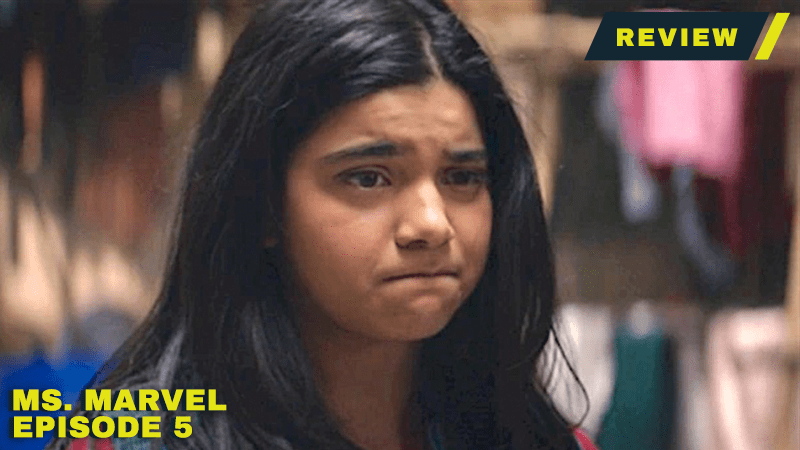After the fourth episode of Ms. Marvel blasted Kamala Khan back to the Partition of India, the fifth and penultimate episode sends us even further into the past by developing the backstory of Aisha, Kamala’s great-grandmother. “Time and Again” opens with an old-fashioned documentary detailing the Partition before throwing us into 1942, where Aisha meets and falls in love with Hasan, an Indian independence activist. This kicks off an episode that features an essential representation of a real-world event but sends this Marvel miniseries down a path that loses its way.
RELATED: Ms. Marvel Finale Release Date & Time: When is it on Disney+
There’s something special about the story of Aisha and Hasan. A woman with magic powers falling in love and having a child with an ordinary man before her past catches up with her is a tale with a lot of dramatic weight. The issue is that this story feels like it belongs in a different show dedicated entirely to it. What made Ms. Marvel so fascinating initially was how it felt like a small-scale coming-of-age story about a teenager discovering she has superpowers. By the time this episode rolls around, Kamala barely feels like the focus of her own show anymore, with much of the episode taking place in the past.
The series premiere, directed by Adil & Bilall, featured such a fun style with the way text appeared on screen and all of the ways Kamala’s drawings were animated. Unfortunately, this episode, directed by Sharmeen Obaid-Chinoy, forgets about the style of those first two episodes, going down a more traditional period piece route. As a result, the whimsical nature of a coming-of-age high school Marvel Cinematic Universe miniseries has vanished entirely, especially with Kamala separated from her best friend Bruno, who only shows up in a cameo appearance at the end of the episode.
At the show’s core, it is about good guys and bad guys pursuing a magical artifact that can be used for good and bad. This cliché story never quite gets used in an exciting way, but at the very least, the episode contains a time travel concept worth watching. After Najma stabs Aisha, Kamala arrives in the past and guides Sana back to her father using a trail of stars, an event previously referenced in the fourth episode. This event could have been much more satisfying had there been a flashback to that event, and this episode played that flashback again with more context. However, the idea of having Kamala destined to reunite her family works thematically.
The episode has a personal layer as it was written by Fatimah Asghar, a poet, and screenwriter whose family was deeply affected by the Partition depicted in this show. The way Asghar uses her family history within her art deserves praise, and the idea of spending time developing Aisha and Hasan works well on paper. However, in the context of a coming-of-age Marvel superhero show, the many ideas in this show never quite gel together the way they should. This may be due to how the tragic real-life event of Partition is juxtaposed with sequences and superpowers so heavy in CGI that everything feels artificial.
RELATED: Ms. Marvel Explained: What Happened to the Clandestines?
Najma transfers her powers to Kamran and sacrifices herself to close the Veil. This leaves the series in a tight spot, as it no longer has an antagonist for Kamala in the finale. Najma being introduced as a villain in the third episode and killed in the fifth episode of a six-part miniseries leads to her being a brief, forgettable villain in a story that does not seem to know what it’s doing. Kamala’s goodbye to the Red Dagger is emotionally empty, given that he was introduced only in the previous episode. This episode illustrates how the whole series needed more breathing time because it has not capitalized on a solid start. Everything is leading to what may be another rushed MCU finale, and all audiences can do is hope Ms. Marvel can somehow bounce back.
SCORE: 4/10
As ComingSoon’s review policy explains, a score of 4 equates to “Poor.” The negatives overweigh the positive aspects making it a struggle to get through.










